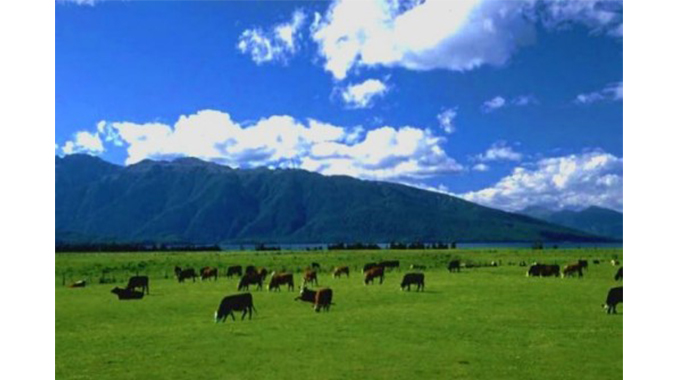
Chronicle Reporter
Over 7 000 farmers in Insiza and Matobo districts will benefit from a rangeland mapping exercise that was carried out by the Department of Research and Specialist Services (DR&SS) in collaboration with ICRISAT.
The intervention is supported by the European Union under the Zimbabwe Agriculture Knowledge and Innovation Systems (ZAKIS) project. It is aimed at improving the productivity of communal pastures in the country’s semi-arid areas.
ZAKIS head of the project Mr Waddilove Sansole said the intervention was aimed at supporting Government’s efforts to build the capacity of livestock value chains and improve the quality of the national herd.
“Pastures in the semi-arid regions of the country where extensive livestock production is the main agricultural activity are the backbone of livelihoods and food security in those communities. Therefore spirited efforts to maintain rangelands and ensure sustainable yields of grazing and forage must be made by scientists and extension officers,” he said.
Rangelands in the semi-arid areas of Zimbabwe are constrained by the low productivity of grazing and forage which negatively affects livestock production. Some of the causes of such low productivity include successive droughts, overgrazing, and environmental degradation. This negatively affects the quantity, quality, and diversity of palatable vegetation and in other cases, it results in the disappearance of some plant species.
The mapping exercise is part of the rangeland management initiative which is being implemented by ICRISAT under the ZAKIS project. It involves the protection, conservation, and improvement of land, water, plant, and animal resources to ensure that they sustainably produce feed for domestic livestock and wild animals.
ICRISAT Zimbabwe country representative Dr Martin Moyo said: “Palatable vegetation species play a significant role in the diets of livestock such as cattle and goats.
The recent mapping exercise is the first stage which allows us to assess the condition of pastures in the selected wards of the two districts. This was important as it will assist in planning the interventions that are designed to redress anomalies and boost fodder productivity.”
He said that the mapping will determine the amount of seeds of the palatable forage species that are contained in the pasture soils.
“This will enable extension staff and farmers to take appropriate mitigation measures to counter the effects of low quantity and quality of locally available fodder. Such regeneration interventions include rangeland reinforcement and enrichment planting as well as mechanical reseeding,” said Dr Moyo.
ZAKIS seeks to improve farmers’ livelihoods by enhancing the dissemination of agricultural knowledge and stimulating innovation through strengthening the working links among agricultural research, education, and extension services in Zimbabwe.
It is implemented by a consortium of local and international agricultural specialist NGOs, comprising of Welthungerhilfe, Sustainable Agriculture Technology, ICRISAT, and Community Technology Development Organisation.
